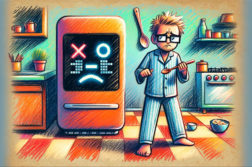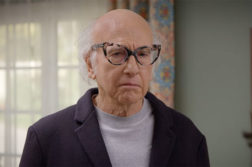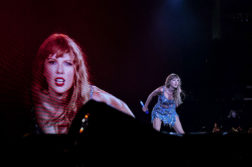Australian politicians named "Bartlett" seem to make good use of the possibilities of user-created content and social media.
Take former Senator Andrew Bartlett’s ongoing experiment with blogging. When he was in the Federal Parliament, he gave a unique, frank insight into his own decision-making and the political process on his own blog. He’s still blogging at his original digs, and on a spin-off blog that’s part of the Crikey stable. He’s always worth reading, and given his experiences and his track record, he must count as one of the most informed and credible political commentators in the country.
More recently, Tasmanian Premier David Bartlett’s use of Facebook has been far more natural than any of the various Twitterings of other politicians. Kevin Rudd clearly has lackeys on the job on his social media accounts, while Malcolm Turnbull and his dogs keep their blogging and social media engagement pretty risk-free.
Queensland Premier Anna Bligh hit new lows in opportunism when she opened Twitter and Tumblr accounts just days before calling an election. And on Facebook Joe Hockey gives what must be the most boring account of public life this side of Hansard (note: you have to befriend him to read it). But Bartlett risks lifting the mask, and revealing the banality of his everyday life away from public duties. An everyday life is something that politicians have hitherto been loath to admit possessing.
Bartlett’s updates, photos and his use of Facebook applications do not speak of a consultant-driven approach to social media. We get the sense that he, like the rest of us, is there because he enjoys being part of a networked community. He likes sharing his enthusiasms and his impressions of events large and small. His contributions are not frequently earth-shattering. The things he reveals are not always particularly interesting ("David wore the blue tie with red dots today"), and they’re often a bit goofy ("David is gearing up for the Hot Rods").
But the net effect is charming, because we get a sense that he is not Facebooking as the Premier of Tasmania, but as David Bartlett, a Gen X former IT geek from Hobart with a tough new job. He reveals himself, as many on Facebook do, as an unabashed fan (of cricket, of Nick Cave), a creature of habit (he’s always jogging), and as someone who is affected by the same events as the rest of us (there were some moving updates during the Victorian bushfires). For all the pressures he must encounter, those of us who are his "friends" get a strong sense that he enjoys and takes great pride in his work. But his page is emphatically not a space for professional or political self-aggrandisement. It’s personal.
I don’t think I’m alone in thinking that politicians miss the point when they engage with social media as just another space for campaigning. Not only that, they miss an opportunity that smart cookies like Bartlett are picking up on. Highly managed and buffed personae are artefacts of mass-mediated politics. For better or worse, that period is passing away. Users of social media expect, rightly or wrongly, a much more conversational and unaffected style of political communication. There is visible frustration on services like Twitter and Facebook when politicians will not engage in the dialogue that many users take to be the key function these spaces afford.
And the professional persona of the politician increasingly presents itself as a target for parody in social media. The Twitter account of Fake Stephen Conroy plays up the thuggish aggression that one sometimes senses under the surface in the good Senator’s media appearances. Those self-styled political players who write opinion columns also have their pomposity pricked in social media, suggesting that "opinion leadership" isn’t quite what it used to be. The Twitter account of "Andrew Bolt" depicts a Rabelaisian scene at the Herald and Weekly Times offices, complete with "teabaggings", pantless columnists and kidnapped politicians.
But Bartlett leaves little room for parody by presenting a version of himself that’s no more varnished than that of any reasonably skilled user of a social networking service.
There’s something to be said, too, about Bartlett choosing Facebook in particular as the place to mark his quotidian presence. While the early-adopter crowd fulminates over Conroy’s "clean feed" on Twitter, Facebook is increasingly the platform of choice for those who don’t think about the internet every moment of their lives. After five years in existence, and roughly two of genuine mass uptake, Facebook is the place where a cross-section of Australians, from the hippest of hipsters to "mums and dads", are drawn to share baby photos, chat, enlist each other in political action, and give each other "Bogan Gifts".
I’m not suggesting that Bartlett has been exceptionally calculating or cynical in his choice, but rather that this particular platform makes the Premier more available, as a "friend" to a wider range of people — Tasmanians and otherwise. He hasn’t gone for the latest thing, but rather has inserted himself in a conversation that’s a bit more established, inclusive and accessible.
Of course, none of this means that Bartlett will necessarily govern any better, or that he shouldn’t be held to account by the news media in the usual ways. But his use of Facebook is something other politicians would do well to notice.
As our media environment changes, and we become more engaged with online social networks, it’s likely that the old methods of political communication and media management will start to have less purchase. To the politicians who are clumsily trying to import massaged images into new, more interactive platforms, the best advice is to take a leaf out of David Bartlett’s book, sack your social media consultant, and be yourself.
Donate To New Matilda
New Matilda is a small, independent media outlet. We survive through reader contributions, and never losing a lawsuit. If you got something from this article, giving something back helps us to continue speaking truth to power. Every little bit counts.



